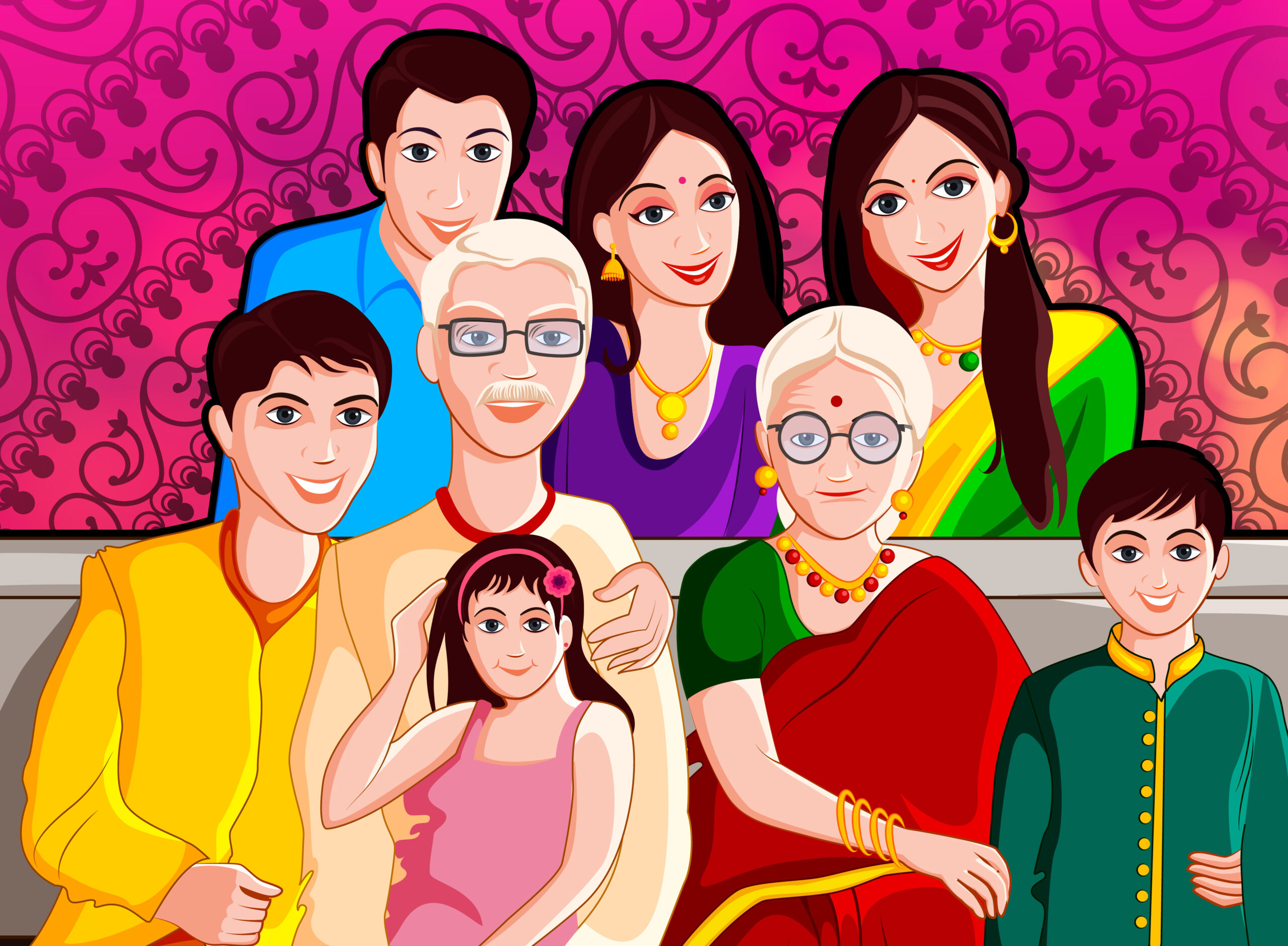Harmony in Diversity: The Essence of Collectivism and Cooperation in Indian Society - SHIVAM JHARWAL
 |
| Religious Harmony in India |
India, as we know it, is a tapestry of diverse cultures and is renowned for its collective ethos and cooperative spirit, reflecting intricate psychological underpinnings that shape societal behavior. The very fabric of Indian society is interwoven with psychological constructs such as 'social identity' and 'interconnectedness.' At the heart of Indian collectivism lies the ancient philosophical concept of 'Vasudhaiva Kutumbakam, ' embodying a cognitive framework that perceives the world as one family. This belief fosters a sense of 'shared social identity' among individuals, transcending traditional boundaries of caste, creed, and religion. Psychologically, this shared identity enhances a collective sense of belonging and purpose. The prevalence of joint families in India is not merely a social structure but a manifestation of 'collective efficacy,' where individuals believe in their joint capacity to achieve common goals. The psychological concept of 'social support' is evident as multiple generations cohabit, sharing responsibilities, resources, and emotional bonds, contributing to individual and communal well-being.
Cooperation in Indian communities is a manifestation of 'reciprocal altruism,' where individuals engage in collaborative efforts for mutual benefit. Traditional practices like communal barn raising during festivals reflect a psychological tendency towards 'cooperative behavior,' where the act of collaboration goes beyond task completion to symbolize shared responsibility and community well-being. The agricultural sector exemplifies the psychological principle of 'social exchange theory,' where farmers engage in cooperative farming practices to maximize collective benefits. Farmer cooperatives, functioning as 'social networks,' facilitate the exchange of resources, knowledge, and labor, showcasing how collective action can address practical challenges and enhance overall agricultural productivity. Religious and cultural events serve as potent triggers for 'collective effervescence,' a term coined by Émile Durkheim, denoting the intense emotional energy generated when individuals come together in shared rituals. Festivals in India, such as Holi, Diwali, or Eid, create a psychological sense of 'communitas' where individuals experience a deep connection and unity, reinforcing the fabric of social cohesion. The psychological concept of 'community resilience' is evident in the traditional notion of 'samaaj' or community, which extends beyond familial ties to encompass the larger social structure. Social institutions like 'panchayats' and resident welfare associations exemplify 'collective decision-making,' where individuals participate in communal decision processes, strengthening social cohesion. As we progress in the 21st century, the psychological dynamics of collectivism are adapting to changing societal structures. Urbanization and globalization contribute to shifts in social norms, influencing concepts such as 'individualism.' However, the enduring psychological constructs of 'cultural resilience' and 'shared identity' continue to shape the nation's collective psyche.
In conclusion, the spirit of collectivism and cooperation in Indian society is deeply rooted in psychological principles that emphasize shared identity, reciprocal altruism, and collective efficacy. As India navigates the psychological complexities of the contemporary world, the essence of collectivism remains a guiding force, reminding individuals of the psychological strength inherent in unity, diversity, and the ageless understanding that the world is indeed one family.

This enlightening blog effectively illustrates the value of cooperation and collectivism in Indian society while emphasizing the benefits of diversity.
ReplyDeleteIt beautifully expresses the spirit of harmony that unites communities, highlighting the richness that results from people working together and appreciating one another's differences. A gripping read that highlights India's rich cultural diversity and the important lessons it can teach us about unity in diversity.
Thanks a lot for your valuable feedback
Delete